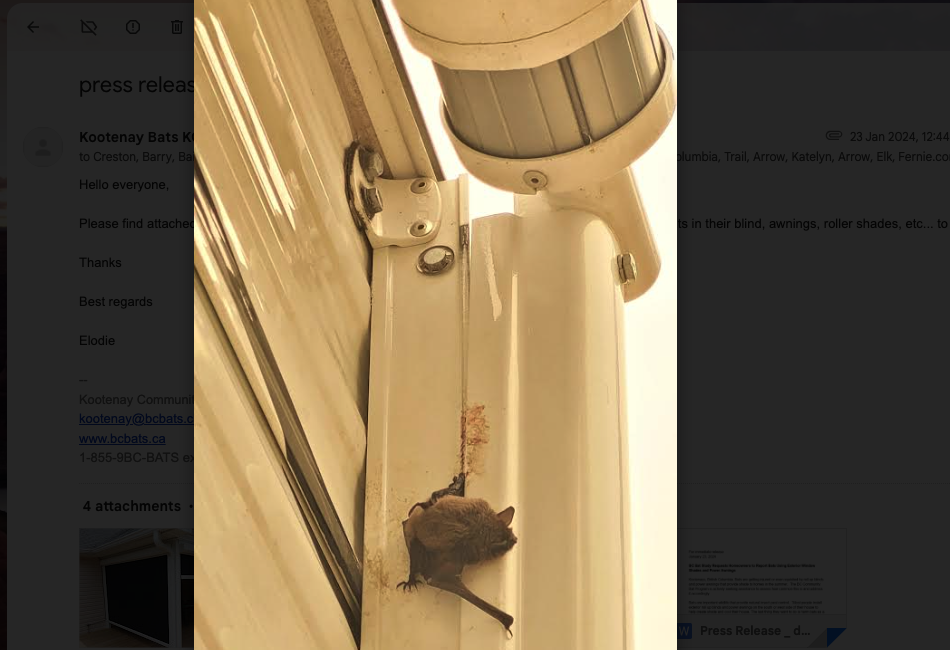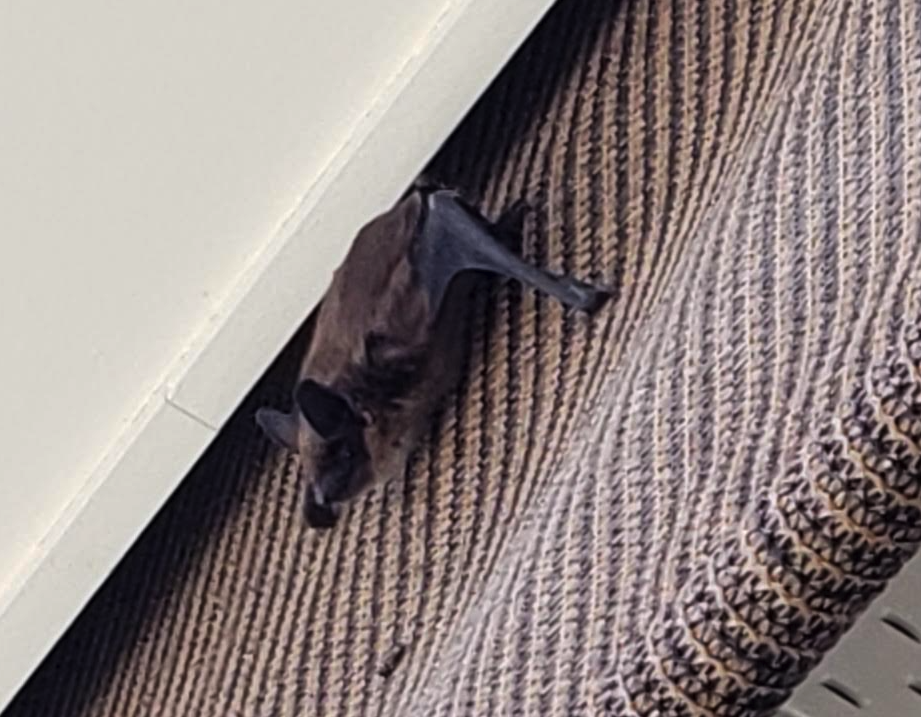BC Bat Study Requests Homeowners to Report Bats Using Exterior Window Shades and Power Awnings
Bats are getting injured or even squished by roll up blinds and power awnings that provide shade to homes in the summer.
The BC Community Bat Program is actively seeking assistance to assess how common this is and address it accordingly.
Bats are important wildlife that provide natural insect pest control.
“Most people install exterior roll up blinds and power awnings on the south or west side of their house to help create shade and cool their house. The last thing they want to do is harm bats as a result of their action,” says Elodie Kuhnert, Kootenay Community Bat Project regional coordinator.
“However, over the last few years, we’ve been getting reports in southern BC of bats being attracted to the shutter housing or box into which the blinds or awnings roll into. Bats are accidentally and unintentionally getting squished or injured when the blinds are rolled up and then they fall out dead when the blinds get rolled down”.
The BC Community Bat Program aims to collect additional reports to assess the prevalence of this issue. According to Kuhnert, if it is determined that such incidents are frequent, the program intends to engage with manufacturers.
The goal is to explore potential design changes, ensuring that awnings and blinds no longer pose a threat to these important animals, turning them into unintentional hazards.
Nine of the 15 species that live in British Columbia are listed as at risk of disappearing.
“We only have insect eating bats in BC. They control nocturnal insect populations and help cycle nutrients from wetlands to forests,” says Kuhnert.
Bats differ from mice in their behavior; they do not construct nests, nor do they chew or scratch to access buildings, as rodents often do. According to Kuhnert, some bats are drawn to small, secure spaces in human-made structures, making awning or shade boxes appealing to them.
To address this, a potential solution involves modifying the awning box design by incorporating features like broom bristles or a cap to seal the entry gap, effectively preventing bats from entering.
Bats are in trouble as they face many threats including white-nose syndrome (WNS), a disease that has killed millions of bats since 2016. WNS does not affect people or pets.
If anyone sees bats roosting in your summer roll up blinds, shades, or awnings in the past years, please contact the BC Community Bat Program at https://bcbats.ca/got-bats/dontsquishbats/, email info@bcbats.ca or call 1-855-922-2287.
To report dead bats this winter, please visit www.bcbats.ca. The BC Community Bat Program is funded by Environment and Climate Change Canada, Habitat Conservation Trust Foundation, Habitat Stewardship Program, and administered by the BC Conservation Foundation.

This Bat was injured by an awning. If anyone sees bats getting unintentionally injured or squished by exterior awnings and roll up blinds, please participate in the study to help biologists understand if this is a common occurrence. — Photo courtesy Troy Corbin






















